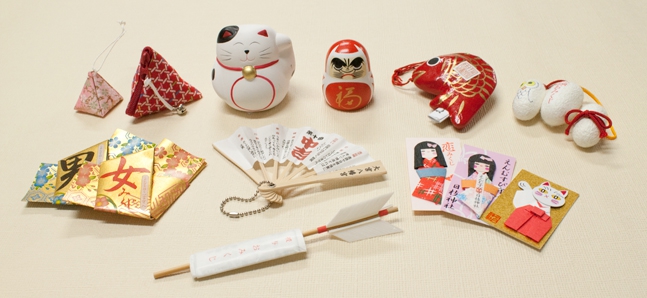
Posted: Tue Feb 25 2014
Pulling out an o-mikuji (a slip of paper with a random fortune written on it) is part of the custom when visiting a temple or shrine in Japan. Said to originate in the practice of drawing lots, used in ancient times to gain divine guidance for decisions like choosing an heir or deciding on government policy, these fortune slips became part of everyday religion in the early days of the Kamakura period (1185-1333). A standard o-mikuji contains a poem and short details on what to expect in the near future, but some places of worship have gone far beyond the simple slip, creating small pieces of art that make great collectibles or souvenirs. Here’s a list of twenty unique o-mikuji, available at various temples and shrines in Tokyo from Asakusa to Azabu-Juban. Why not set out on a quest to ‘catch them all’?
Imado Shrine, Asakusa: Find cats and love
 Well known for its maneki-neko ('beckoning cat') figures, Imado Shrine lets you try divining your fortunes with the rensho ('win at love') mikuji (¥200), complete with some detailed love advice, or the maneki-neko mikuji (¥200), which comes with a small cat-shaped charm. The latter is available in seven different colours, with the 'benefits' (e.g. monetary or match-making) changing depending on the colour.
Well known for its maneki-neko ('beckoning cat') figures, Imado Shrine lets you try divining your fortunes with the rensho ('win at love') mikuji (¥200), complete with some detailed love advice, or the maneki-neko mikuji (¥200), which comes with a small cat-shaped charm. The latter is available in seven different colours, with the 'benefits' (e.g. monetary or match-making) changing depending on the colour.
Imado Shrine details
Otori Shrine, Iriya: Say meow
 Known as the birthplace of the Tori no Ichi festival, Otori Shrine carries an advanced version of the maneki-neko mikuji (¥300). The cutesy unglazed clay figurine contains a fortune slip with the standard Tanka poem written on it. Here's a fortune that'll put a smile on your face, no matter what the prediction.
Known as the birthplace of the Tori no Ichi festival, Otori Shrine carries an advanced version of the maneki-neko mikuji (¥300). The cutesy unglazed clay figurine contains a fortune slip with the standard Tanka poem written on it. Here's a fortune that'll put a smile on your face, no matter what the prediction.
Otori Shrine details
Nitta Shrine, Musashi-Nitta: Angle for luck
 Grab the special rod and fish up a lucky tai (seabream) fish (¥300), a five-centimetre charm that also contains a standard fortune. Use it as an amulet and bring your luck with you wherever you go.
Grab the special rod and fish up a lucky tai (seabream) fish (¥300), a five-centimetre charm that also contains a standard fortune. Use it as an amulet and bring your luck with you wherever you go.
Nitta Shrine details
Hanazono Shrine, Shinjuku: Get Daruma drawings
 Heading into Kabukicho? Secure your fortunes first with the Daruma mikuji (¥300), a cool wooden doll that comes in either red or white. Tug on the colourful string to pull out the fortune slip.
Heading into Kabukicho? Secure your fortunes first with the Daruma mikuji (¥300), a cool wooden doll that comes in either red or white. Tug on the colourful string to pull out the fortune slip.
Hanazono Shrine details
Hato no Mori Hachiman, Sendagaya: Fly like a dove
 Pick up the dove-formed hato mikuji (¥100) and climb this Sendagaya shrine's Fujizuka mound, the largest Mt Fuji-imitating structure in Tokyo. Rest your weary legs afterward at the excellent Monmouth tea stand, located diagonally across the street from the shrine.
Pick up the dove-formed hato mikuji (¥100) and climb this Sendagaya shrine's Fujizuka mound, the largest Mt Fuji-imitating structure in Tokyo. Rest your weary legs afterward at the excellent Monmouth tea stand, located diagonally across the street from the shrine.
Hato no Mori Hachiman details
Yoyogi Hachimangu, Yoyogi: Bring the happiness
 Step out of Yoyogi Park for a visit at this sizeable shrine and pick up the 'happiness-bringing dove' o-mikuji, which comes complete with a dove-themed charm. All seven versions of the charm have different 'benefits'.
Step out of Yoyogi Park for a visit at this sizeable shrine and pick up the 'happiness-bringing dove' o-mikuji, which comes complete with a dove-themed charm. All seven versions of the charm have different 'benefits'.
Yoyogi Hachimangu details
Omiya Hachimangu, Nishi-Eifuku: Live long and prosper
 Stroll through the residential neighbourhoods of Nishi-Eifuku to Omiya Hachimangu and divine your fortunes with the fan-shaped suehiro (prosperity-increasing) mikuji (¥300). The shrine also stocks different types of fun fortunes, including a 'Rilakkuma' character omikuji and a Daruma-themed one. We recommend visiting in autumn, when the shrine's impressive ginkgo trees are at their most beautiful.
Stroll through the residential neighbourhoods of Nishi-Eifuku to Omiya Hachimangu and divine your fortunes with the fan-shaped suehiro (prosperity-increasing) mikuji (¥300). The shrine also stocks different types of fun fortunes, including a 'Rilakkuma' character omikuji and a Daruma-themed one. We recommend visiting in autumn, when the shrine's impressive ginkgo trees are at their most beautiful.
Omiya Hachimangu details
Ebara Shrine, Shinbamba: Hit the mark
 Situated on the Meguro River in the Kita-Shinagawa area, Ebara Shrine lets you can test your fortunes with the hamaya mikuji (¥200), shaped like a decorative arrow said to ward off evil. The actual fortune slip is also slightly more stylish than usual, as it's printed on soft paper and decorated with green text. You might also want to stop by nearby Shinagawa Shrine and its Fujizuka mound while you're in the area.
Situated on the Meguro River in the Kita-Shinagawa area, Ebara Shrine lets you can test your fortunes with the hamaya mikuji (¥200), shaped like a decorative arrow said to ward off evil. The actual fortune slip is also slightly more stylish than usual, as it's printed on soft paper and decorated with green text. You might also want to stop by nearby Shinagawa Shrine and its Fujizuka mound while you're in the area.
Ebara Shrine details
Shiba Daijingu, Hamamatsucho: Triangulate
 Shiba's great shrine sells the sankaku mikuji (¥300), a small triangular pouch that comes with a fortune slip and a decorative stone. You can choose from a variety of colours for the pouch, while the fortune is inscribed with a traditional proverb in addition to the standard poem and prediction. As for the stone, you'll get a random pick from a selection of eight colours.
Shiba's great shrine sells the sankaku mikuji (¥300), a small triangular pouch that comes with a fortune slip and a decorative stone. You can choose from a variety of colours for the pouch, while the fortune is inscribed with a traditional proverb in addition to the standard poem and prediction. As for the stone, you'll get a random pick from a selection of eight colours.
Shiba Daijingu details
Ushijima Shrine, Azumabashi: Savour the seasons
 Located a quick walk from Tokyo Skytree, Ushijima Shrine has an impressive selection of o-mikuji. The shiki-no-hana (flowers of the four seasons) mikuji (¥200), with its coloured paper decorated with flower drawings, is a particular rarity. Untie the string to read your fortune on the inside of the paper and to uncover the bell-formed charm. The shrine grounds also host the nade-ushi, a cow sculpture said to have healing powers. Rub the part of your body that needs care, then use the same hand to rub the corresponding part on the cow, and voilà – you'll be spared a trip to the doctor's.
Located a quick walk from Tokyo Skytree, Ushijima Shrine has an impressive selection of o-mikuji. The shiki-no-hana (flowers of the four seasons) mikuji (¥200), with its coloured paper decorated with flower drawings, is a particular rarity. Untie the string to read your fortune on the inside of the paper and to uncover the bell-formed charm. The shrine grounds also host the nade-ushi, a cow sculpture said to have healing powers. Rub the part of your body that needs care, then use the same hand to rub the corresponding part on the cow, and voilà – you'll be spared a trip to the doctor's.
Ushijima Shrine details
Juban Inari Shrine, Azabu-Juban: Check the cocoon
 Stroll to the end of the Azabu-Juban shopping arcade to divine your fortunes with the mayu mikuji, a small cocoon-shaped thing wrapped with a ribbon. Recipients of good news can celebrate with some taiyaki at the nearby shop.
Stroll to the end of the Azabu-Juban shopping arcade to divine your fortunes with the mayu mikuji, a small cocoon-shaped thing wrapped with a ribbon. Recipients of good news can celebrate with some taiyaki at the nearby shop.
Juban Inari Shrine details
Koami Shrine, Ningyocho: Mind the mayu
 Said to possess over a millennium of history, Nihonbashi's Koami Shrine also boasts some impressive omikuji. Check out their version of the mayu-dama (¥300), a resealable container with a classic fortune hidden inside. After finding out your future, make sure to close up the ball again if you'd like to use it as a decoration or present.
Said to possess over a millennium of history, Nihonbashi's Koami Shrine also boasts some impressive omikuji. Check out their version of the mayu-dama (¥300), a resealable container with a classic fortune hidden inside. After finding out your future, make sure to close up the ball again if you'd like to use it as a decoration or present.
Koami Shrine details
Onoterusaki Shrine, Iriya: Be happy
 Looking for help in your academic or arts pursuits? This Iriya shrine is the place to go, and the omikuji here are pretty sweet too. Try the owl-themed shiawase (happiness) mikuji (¥500), which comes with a special 'wish letter'. After writing your wish on the paper, place it back inside the container for safekeeping, and wait for your desires to materialise. Make sure to also visit the shrine's Fujizuka mound, 'Shitaya Sakamoto Fuji', while you're at it.
Looking for help in your academic or arts pursuits? This Iriya shrine is the place to go, and the omikuji here are pretty sweet too. Try the owl-themed shiawase (happiness) mikuji (¥500), which comes with a special 'wish letter'. After writing your wish on the paper, place it back inside the container for safekeeping, and wait for your desires to materialise. Make sure to also visit the shrine's Fujizuka mound, 'Shitaya Sakamoto Fuji', while you're at it.
Onoterusaki Shrine details
Karasumori Shrine, Shinbashi: Colour your prayers
 Many Shinbashi salarymen say their daily prayers at this small shrine located just a short walk from the station. Try the shingan-shoku (colour of prayer) (¥500), a super-omikuji that can tell fortunes and grant wishes at the same time. Choose one of the four different colours (red, for love and successful matchmaking; yellow, for financial success and good luck; blue, for work and academics; green, for health and family), then write your wish on the negai-fuda (wish slip) that comes together with the fortune, tie it to the designated place, and then just wait for a priest to pray for your wish to come true. The negai-tama (wish ball) that also comes with the set can be used as an amulet.
Many Shinbashi salarymen say their daily prayers at this small shrine located just a short walk from the station. Try the shingan-shoku (colour of prayer) (¥500), a super-omikuji that can tell fortunes and grant wishes at the same time. Choose one of the four different colours (red, for love and successful matchmaking; yellow, for financial success and good luck; blue, for work and academics; green, for health and family), then write your wish on the negai-fuda (wish slip) that comes together with the fortune, tie it to the designated place, and then just wait for a priest to pray for your wish to come true. The negai-tama (wish ball) that also comes with the set can be used as an amulet.
Karasumori Shrine details
Tokyo Daijingu, Iidabashi: Long for love
 Ran out of luck in romance? Recharge at Tokyo Daijingu, known as the top 'love shrine' in the city. Omikuji like the koi and koibumi (all ¥200) are good choices, and the amulets here shouldn't be missed either.
Ran out of luck in romance? Recharge at Tokyo Daijingu, known as the top 'love shrine' in the city. Omikuji like the koi and koibumi (all ¥200) are good choices, and the amulets here shouldn't be missed either.
Tokyo Daijingu details
Hie Shrine, Tameike-Sanno: Do some monkey business
 Hie Shrine, host to the yearly Sanno Festival, is also one of the main love-related shrines in Tokyo. Their basic koi-mikuji (¥500) is a safe choice, but the many monkey-themed charms are the real attraction. Monkeys are revered as messengers of the gods enshrined at Hie, and are also believed to provide blessings for safe childbirth. The characters for 'monkey' and 'destiny' are also both read as en.
Hie Shrine, host to the yearly Sanno Festival, is also one of the main love-related shrines in Tokyo. Their basic koi-mikuji (¥500) is a safe choice, but the many monkey-themed charms are the real attraction. Monkeys are revered as messengers of the gods enshrined at Hie, and are also believed to provide blessings for safe childbirth. The characters for 'monkey' and 'destiny' are also both read as en.
Hie Shrine details
Tobi Fudoson, Minowa: Consult the Seven Lucky Gods
 Get your fortune from the fellows that know it best, namely the mythical Seven Lucky Gods, at this temple that's renowned as a source of protection for travellers. The omikuji (¥100) comes with a gold charm depicting one of the gods. The other charms on sale here are also worth a look: golfers might want to consider the one that's supposed to help make your swings longer and more accurate.
Get your fortune from the fellows that know it best, namely the mythical Seven Lucky Gods, at this temple that's renowned as a source of protection for travellers. The omikuji (¥100) comes with a gold charm depicting one of the gods. The other charms on sale here are also worth a look: golfers might want to consider the one that's supposed to help make your swings longer and more accurate.
Tobi Fudoson details
Kasama Inari Shrine, Ningyocho: Wish for a long life
 Ningyocho's Kasama Inari, an offshoot of the famed Ibaraki shrine of the same name, is dedicated to god of longevity Jurojin. The fortune slip here (¥200) comes with a golden charm depicting the shrine's patron, who's particularly popular among worshippers around New Year's. Those disappointed with their fortune can get revenge by stopping at a local sweet shop and gobbling down some ningyo-yaki cakes, shaped like the faces of the Seven Lucky Gods.
Ningyocho's Kasama Inari, an offshoot of the famed Ibaraki shrine of the same name, is dedicated to god of longevity Jurojin. The fortune slip here (¥200) comes with a golden charm depicting the shrine's patron, who's particularly popular among worshippers around New Year's. Those disappointed with their fortune can get revenge by stopping at a local sweet shop and gobbling down some ningyo-yaki cakes, shaped like the faces of the Seven Lucky Gods.
Kasama Inari Shrine details
Zojo-ji Temple, Shiba Park: Pick up an animal companion
 Located right by Tokyo Tower, Zojo-ji is the main temple of the Buddhist Jodo sect in the Kanto area. The omikuji here (¥200) come with a small charm, most of which are shaped like animals. There are 13 different varieties available, including the cute turtle pictured above. The text on the fortune slip is in both Japanese and English.
Located right by Tokyo Tower, Zojo-ji is the main temple of the Buddhist Jodo sect in the Kanto area. The omikuji here (¥200) come with a small charm, most of which are shaped like animals. There are 13 different varieties available, including the cute turtle pictured above. The text on the fortune slip is in both Japanese and English.
Zojo-ji Temple details
Toyokawa Inari Tokyo Betsuin, Akasaka: Succumb to gender norms
 Popular with Akasaka's celeb crowd, Toyokawa Inari has different omikuji for men and women (both ¥200). The glossy paper is probably the best thing about these simple but stylish fortunes that also come with a simple amulet.
Popular with Akasaka's celeb crowd, Toyokawa Inari has different omikuji for men and women (both ¥200). The glossy paper is probably the best thing about these simple but stylish fortunes that also come with a simple amulet.
Toyokawa Inari Tokyo Betsuin details
Tags:
Tweets
- About Us |
- Work for Time Out |
- Send us info |
- Advertising |
- Mobile edition |
- Terms & Conditions |
- Privacy policy |
- Contact Us
Copyright © 2014 Time Out Tokyo










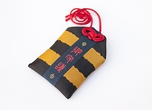
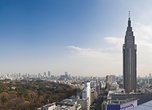
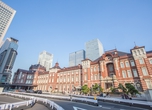
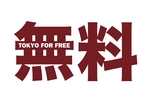
Add your comment